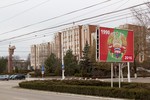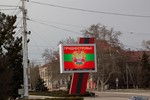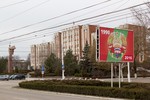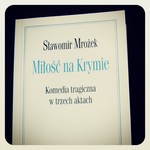Dealing with Russia's brazenness in cyber space
Western governments recently attributed to Russia a massive cyber-attack against Georgia. In this and other situations, the brazenness of the attack was seemingly a goal in itself. But Russia is not the only cyber threat. Structural political incentives for better security practices and international solidarity and assistance are needed
Political parties, please meet cybersecurity
They have large amounts of private data, their internal communications are highly sensitive, they have a lot of power, they don’t seem to take cybersecurity seriously. How do we move forward?
Originally published on balcanicaucaso.org
In early 2019, the European Union’s Agency for Cybersecurity (ENISA) released a set of recommendations for EU-wide election cybersecurity . They focused mainly on three aspects: online disinformation, threats to the digital infrastructure that is used to manage the voting process, and concerns about the cybersecurity of political organisations and political practitioners.
The conditions for a pluralistic digital future: interoperability, transparency, and control over data
A reflection on the necessary conditions to be not only users, but also citizens of the digital spaces in which we live: owners of rights, owners of one’s own personal data, free to choose which services to use, which suppliers to turn to, and free to know what criteria determine what appears on our screens
The EU and De Facto States: Adjust Expectations, Support Small Steps
As of early 2019, policy-makers looking for pragmatic and forward-thinking approaches to meaningful engagement with de facto states in the EU’s neighbourhood should keep as their point of reference Thomas de Waal’s recently published book “ Uncertain Ground: Engaging With Europe’s De Facto States and Breakaway Territories”. He argues in favour of a “more sophisticated rules of engagement within a framework of non-recognition”, suggesting that the international community should “be prepared to engage more directly with de facto authorities on a give-and-take principle,” and further presents a number of specific recommendations on issues such as higher education, health, minority rights, and trade (in a previous commentary for ISPI, I have similarly argued in favour of a pragmatic, nuanced approach to increased engagement focusing on human rights and trade).
After a new president came to power, what happened to Transnistria’s media?
I have analysed Transnistrian online media 18 months after Vadim Krasnoselski came to power. I found clear evidence of selective removal of “unpleasant” old news items, but no evidence of mass dismissal of journalists.
In Transnistria – a de facto independent state located within the internationally recognised borders of Moldova – in the aftermath of the December 2016 presidential vote, the risk of increased tensions seemed to be particularly high, as Vadim Krasnoselski – who won the vote – had threatened to jail the incumbent Shevchuk on live TV during a pre-electoral debate, and people in top positions close to Shevchuk knew they had a lot to lose from an unfavourable electoral outcome.
Confidence Building by Any Other Name? Surpassing the Triple Bottleneck of Assistance to De Facto States
In spite of their contested nature, de facto states in the post-Soviet space engage in substantive external relations across a number of sectors, well beyond the dominant relationship they have with their patron. In recent years, confidence building programmes sponsored by the European Union have represented a venue for interactions between local actors in de facto states and the outside world. Such assistance – including capacity building projects and relatively small initiatives aimed at enhancing the social infrastructure in the health and education sector – contributes to the welfare of the local population and is welcomed by de facto authorities.
The presidential election in Transnistria
Originally published on Presidential Power
The presidential election that took place on 11 December 2016 in Transnistria, a de facto independent state within the internationally recognised borders of Moldova, ended with the resounding victory of the speaker of parliament, Vadim Krasnoselski (62,3%), over the incumbent president, Yevgeny Shevchuk (27,38%), the candidate of the Communist party, Oleg Khorzhan (3,17%), and others (including 3,4% who voted “against all”, which is formally one of the options given on the ballot).
The upcoming presidential election in Transnistria
Originally published on Presidential Power
Presidential elections in Transnistria, a de facto independent state within the internationally recognised borders of Moldova, are scheduled for 11 December 2016. Out of a total of seven registered candidates, the two main contenders for the position are the incumbent president, Yevgeny Shevchuk, and Vadim Krasnoselski, who currently serves as the speaker of the Transnistrian parliament (locally still known as “Supreme Soviet”).
Freedom House ranks Transnistria as “not free”, yet elections take place regularly, are competitive and – as the 2011 vote showed – a serving president can lose at the polls.
The missing page in the Association Agreements
It might be one page, one paragraph, or just two lines. But the importance of including child protection in EU’s Association Agreements cannot be overestimated
Amore in Crimea
I timori per quanto sta accadendo in Ucraina erano stati anticipati da vari studiosi. Ma cosa ha fatto l’Unione europea per limitare la crisi? E che cosa potrebbero fare le istituzioni europee per evitare che i cittadini ucraini perdano la fiducia nell’Europa? Un’analisi





